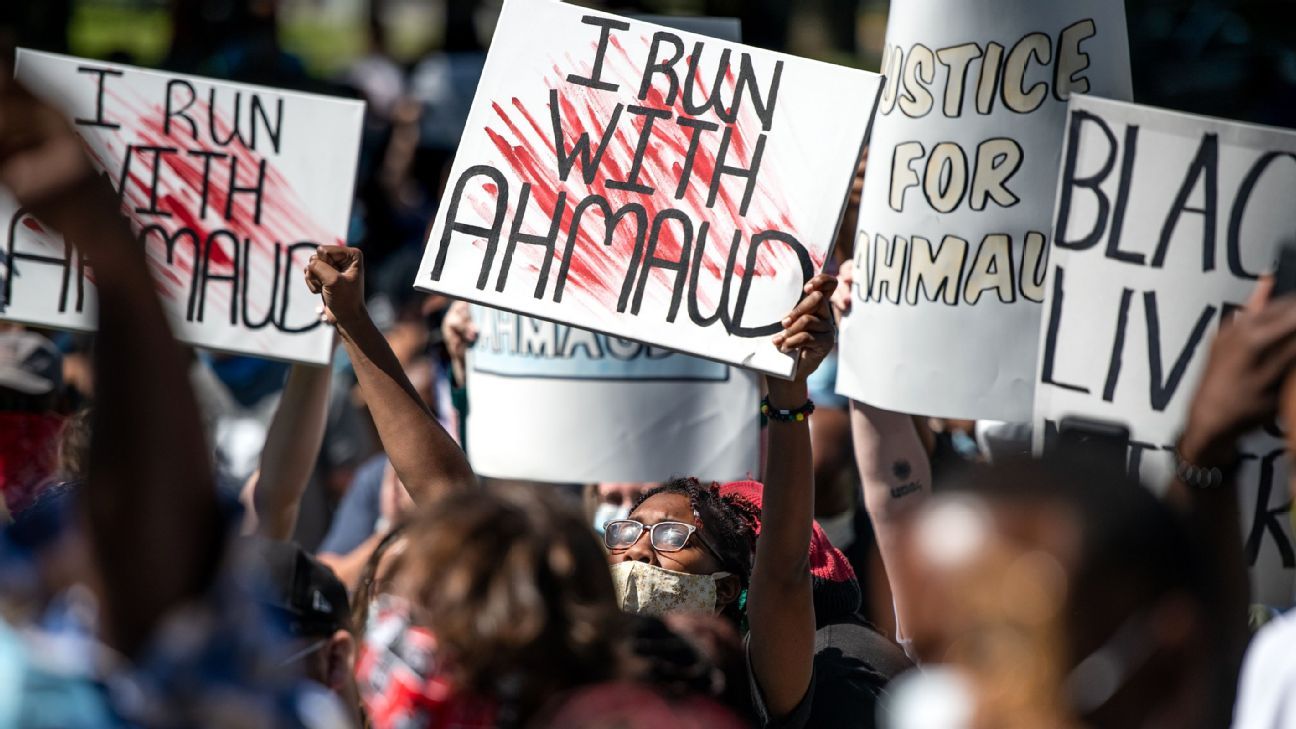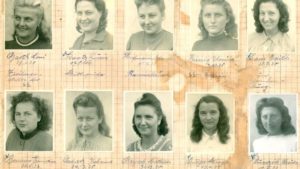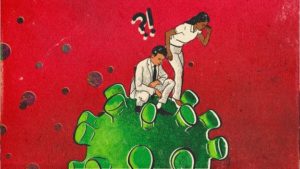James Ravenell, an IT professional and founder of the national group Black Runners Connection, calls running his meditation — an escape from the daily stress of being black in America. Now he feels running has been sullied for him.
“Running is a thing that allows us to escape, even just for a little bit, from all the craziness,” said Ravenell, 45, of Brooklyn, New York. “Here’s a thing that so many of us are trying to do … just so we can stay physically fit and mentally fit. To have this type of assault on us is just really exhausting.”
When video emerged this week of runner Ahmaud Arbery being fatally shot in February by two white men outside of Brunswick, Georgia, it released a feeling of frustration in Ravenell. On Thursday, father and son duo Gregory McMichael, 64, and Travis McMichael, 34, were arrested and charged with murder and aggravated assault.
“I’m legitimately just tired of it,” Ravenell told The Undefeated. “It’s a lot of trauma to constantly know that people see you and they just feel threatened by you, by nothing that you have done.”

Ravenell is among a group of runners across the country pledging to run or walk 2.23 miles Friday in honor of Arbery on what would have been his 26th birthday. They’re each logging their miles from points across the country, at all times of the day and night, taking selfies with their smartphones and posting the images to social media. They’re using the hashtag #IRunWithMaud.
The 2.23 comes from the day Arbery was fatally shot — Feb. 23. The #IRunWithMaud campaign was launched by Arbery’s high school football coach, Jason Vaughn, and promoted by the runwithmaud.com website, paid for by a political action committee headed by civil rights lawyer Lee Merritt. In several posts on social media, runners vowed to pound the pavement in honor of Arbery and to advocate for justice on his behalf. As of Friday morning, more than 54,000 people liked an “I Run With Maud” Facebook page.ADVERTISEMENT
While running on Friday, Vaughn told The Undefeated between breaths that he was motivated to start the campaign because of a memory of Arbery from last fall.
“The last time I saw [Arbery] he was running in the community; I saw him running down my road and I thought I could sprint to catch up with him and get a chance to see his smile and talk with him,” Vaughn said. “But he was too fast … I got tired. I couldn’t catch up with him. I got tired that day, but ‘Maud kept going, so I want to run this marathon for justice, just like ‘Maud would run.”
When asked for his reaction to the arrests, he said, “just relieved that these two men are now in custody and out of our community, and the first steps are now being taken so that this family can now get justice for their son.”
The case unfolded as the country was just beginning to focus on the COVID-19 pandemic. Arbery was running in a neighborhood outside of Brunswick when the McMichaels spotted him, grabbed two guns and followed him in a truck, according to a police report. The elder McMichael told police that Arbery resembled a suspect in a string of nearby robberies. In a video released Tuesday, Arbery is seen running and coming upon a truck. When he next comes into view, he is tussling with a man and three gun blasts are heard. Arbery died on the street, authorities said.
A prosecutor in Georgia held onto the case for weeks before recusing himself due to a conflict of interest, and then advised the Glynn County, Georgia, Police Department that there was insufficient probable cause to bring charges, The New York Times reported. The elder McMichael is a former police officer and former investigator for the district attorney’s office.
The case has brought outcries for answers from all corners. Los Angeles Lakers star/activist LeBron James and other athletes, such as tennis phenom Coco Gauff, joined the conversation on social media.“We can all relate to just being out there running and not thinking this will be your last day on earth.” — Anthony Reed
What makes cases like this one sting in particular for black runners, especially black men, is that they already go out of their way to let the public know they are not a threat, said Ravenell and Davon Culley, the other co-founder of Black Runners Connection. They wear bright colors and clothing that is clearly intended for running. They stick to neighborhoods they know, they said. If they see women, particularly white women, they make sure to steer clear.
Ultramarathon runner and triathlete Phoenix Mourning-Star said he is used to keeping his guard up and keeping an eye out for trouble when using streets and trails to train. Mourning-Star, an epidemiologist out of Washington, is in Waterville, Maine, temporarily to address the COVID-19 pandemic. The endurance athlete, who also is a diversity consultant, said that having to train in Maine, where the black population is 1.2%, has brought this home for him.
“White America does not have to teach their boys and girls to be careful,” said Mourning-Star, 41.
For some, sharing a story of being threatened, harassed or, at the very least, being stopped for no reason by police or security, is a common thread.

Anthony Reed, co-founder of the National Black Marathoners Association, said he has had beer cans thrown at him and had the N-word shouted at him. Ravenell said that during a run in Lansing, Michigan, where he traveled for business, a car slowed down and someone inside pointed an imaginary gun at him.
Culley recalls pushing through a 20-mile run in Queens, New York, where he lives, and seeing a woman ahead. She kept looking back at him and then grabbed a large branch from the side of the road. As he ran past, she stood and stared at him with the branch in her hand, he said.
“I’m no threat to anybody,” said Culley, 47, who heads up human resources for the New York City Criminal Court.
“I’m just trying to get my miles in,” he added. “I do believe that if I was a 6-1, blond-haired, blue-eyed person, I personally don’t think she would have picked up a stick. It’s still pretty upsetting.”
Edward Walton, co-founder of the international group Black Men Run, said he and other members have discussed black men’s fear and caution while out running. The cybersecurity architect and consultant said he’s careful when he travels to places such as Wyoming or Omaha, Nebraska, where the black population is smaller.
“I don’t run in unfamiliar areas if I don’t have to and it’s always subconsciously: don’t go to places where a simple act of getting lost could escalate into something,” Walton, 51, of Smyrna, Georgia, said.

“The greatest danger are those who believe they can exercise the privilege and question why you were there, and call the police,” Walton said. “We’re already perceived as predators from a young age. A lot of times, it’s fear. I’m 5-7-and-a-half. You can have a police officer, 6-4, 230 pounds, and he would still be afraid of me and would exercise deadly force.”
Black Men Run has formally expressed its frustration over the case and encouraged local captains to organize events and take part in the #IRunWithMaud campaign, Walton said. The organization’s leadership team is reviewing actions it can take to make a true impact, he said.
“Action without impact is nothing more than responding without emotion,” he said.
What is sure is that Walton will be taking part in the campaign and logging 2.23 miles Friday along with many others. The reaction to the campaign has been broad and sweeping, particularly among black male runners.
John Piggott ran a 26.2-mile marathon in honor of Arbery’s 26th birthday. Piggott, a 178-time marathoner and the first African American to win 16 marathons, said something about the case affected him deeply.
“I saw the video and I can’t get it out of my mind,” said Piggott, 54, of Williamsburg, Virginia. “This guy wasn’t doing anything but being himself and that could have been me, that could have been anybody. He did nothing wrong to anyone.”“We are not going to tuck our tails and run. We are going to keep doing these things that make us happy. The world has to adjust. We are not going anywhere.” — James Ravenell
Members of the National Black Marathoners Association were buzzing about the case on their Facebook page, most of them expressing hurt and anger. Co-founder Reed told The Undefeated that their own experiences, while not fatal, were similar to Arbery’s.
“We can all relate to just being out there running and not thinking this will be your last day on earth,” said Reed, 64, who lives in Dallas.
Reed travels to speak to groups about project management and diversity. Between work assignments, he’s run 131 marathons in seven continents and 50 states. Fear of being attacked led him to study Shotokan karate.
His members shared the #IRunWithMaud flyers among themselves, and Reed had an email sent out to his members to let them know, since there are some who are not active on social media.
“I hope it brings visibility to the fact that blacks encounter, blacks have a different experience when we go for a run,” Reed said of the event. “We would like to run to relieve the stress, but in the back of our minds that same run can be stressful.”
As for Ravenell, he sees an underlying message in Friday’s campaign.
“We are not going to tuck our tails and run,” he said. “We are going to keep doing these things that make us happy. The world has to adjust. We are not going anywhere.”




